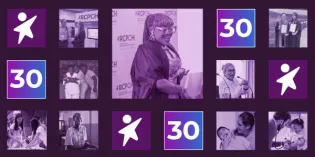The NNAP Project Board conducts a regular review of the NNAP dataset and audit measures in close consultation with the wider neonatal community, taking note of the publication or amendment of any relevant professional guidance and/or standards.
The NNAP project team notifies participating neonatal networks and units of any changes to the audit dataset, prior to those changes being implemented.
Audit measures for 2025
The final set of measures that the NNAP will report for the 2025 data year are confirmed. In line with the requirements of our contract to deliver the NNAP, reporting is streamlined to 10 headline performance metrics, some of which are composite (or bundled) metrics, which support the NNAP Healthcare Improvement Strategy and improvement goals.
We continue to report component measures sitting behind these 10 performance metrics on at least a quarterly basis to enable and support local monitoring and quality improvement activity, and final, full year results for the component measures will be published annually. We will distinguish in our public facing reporting, and our ‘direct to unit’ reporting between assured annual data (data for assurance) and frequent reporting (data for improvement). The 10 performance metrics are summarised:
- Mortality until discharge
- Optimal perinatal care composite metric (component measures: antenatal steroids, antenatal magnesium sulphate, birth in a centre with a NICU, deferred cord clamping, normal temperature on admission, breastmilk feeding in the first 2 days of life)
- Clinical outcomes composite metric (component measures: bloodstream infection, BPD, NEC, preterm brain injury)
- Parental consultation within 24 hours of every admission
- Parental inclusion in consultant ward rounds
- Breastmilk feeding composite metric (component measures: breastmilk feeding at day 14, breastmilk feeding at discharge home)
- Follow-up at two years
- On-time screening for retinopathy of prematurity
- Neonatal nurse staffing
- Non-invasive breathing support
You can read the full detail of the metrics and component measures, inclusion criteria, data source and how they are derived in the updated 2025 measures guide which can be downloaded below.
There are no significant changes in the measures since 2024.
Data dictionary
The full data dictionary for the 2024 reporting year was published in March 2025 - download at the bottom of this page
Previous years audit measures guides
The 2024, 2023, and 2022 audit measures guides are available - download at the bottom of this page
Retinopathy of prematurity (ROP) screening calculator
This RCPCH Microsoft Excel calculator is designed to help you plan the timing of the first ROP screening appointment for eligible babies. You can download this on the web page for the ROP screening guideline and resources (2024).
NNAP Quality Improvement Strategy
The overarching aim of the NNAP Quality Improvement Strategy is to assess whether babies admitted to neonatal units in England, Scotland, Wales and the Isle of Man receive consistent, high-quality care in relation to the NNAP audit measures that are aligned to a set of professionally agreed guidelines and standards, to identify areas for improvement and to empower stakeholders to use audit data to stimulate improvement in care delivery and outcomes.
Access this webpage to download the full Quality Improvement Strategy.







